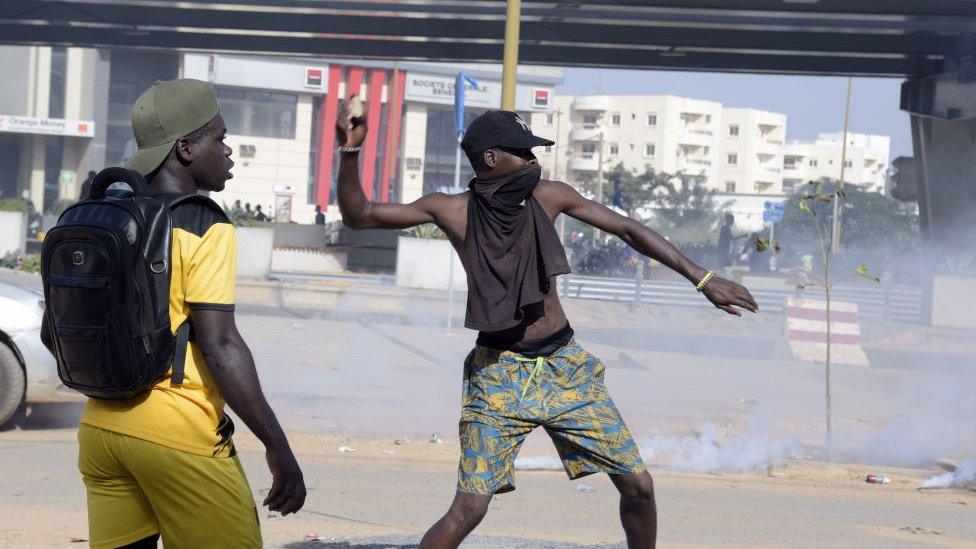Guinea opposition leader backs coup against Alpha Condé
- Published
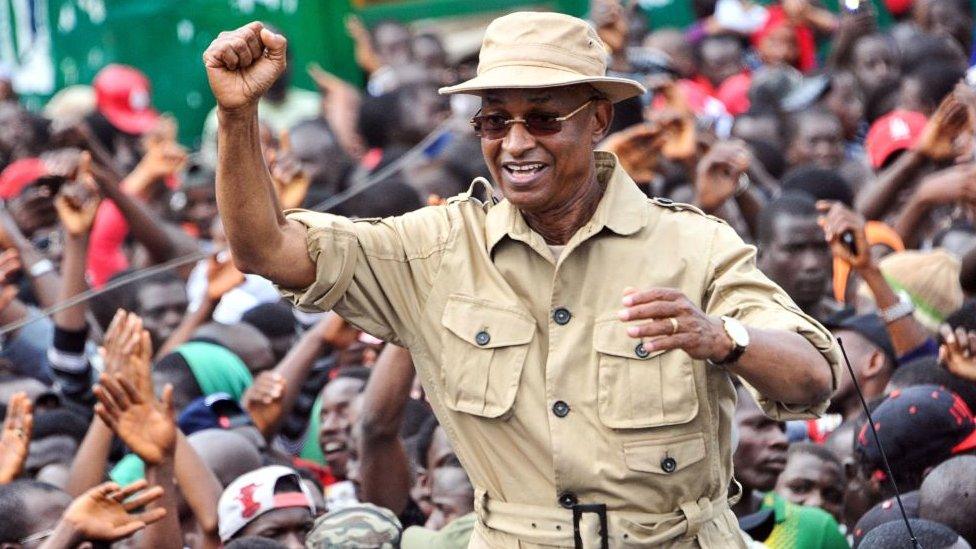
Cellou Dalein Diallo says the coup "completes" the work that opposition groups had begun
Guinea's main opposition leader has welcomed Sunday's ousting of President Alpha Condé calling it an opportunity for a new beginning for the country.
Cellou Dalein Diallo said the army had made "a historic act that completes the fight" started by pro-democracy groups.
He urged the army to ensure there was national reconciliation.
The UN, African Union, and regional body Ecowas have condemned the coup saying that constitutional order should be restored.
They have also called for the release of President Condé who was last seen on Sunday surrounded by the army's special forces.
The coup leader Col Mamady Doumbouya told reporters on Monday that the ousted leader was in their custody and was safe.
Normalcy returned in the capital, Conakry, on Tuesday after the unease that followed Sunday's coup, journalist Alhassan Sillah told the BBC's Focus on Africa programme.
He added that people in opposition areas have also welcomed the dismantling of security check points which were put up by Mr Condé's administration to crack down on protests against him.
AFRICA LIVE: Reaction to the Guinea coup and more stories from the continent
PROFILE: Who is Guinea's coup leader?
FOOTBALL: Keita 'safe and well' in Guinea
QUICK GUIDE: Guinea country profile
Mr Diallo was the president's main challenger in last year's election, which saw Mr Condé run for a controversial third term.
The ousted leader was initially elected in 2010 in the country's first democratic transfer of power.
Despite overseeing some economic progress, he has since been accused of presiding over numerous human rights abuses and harassment of his critics.
In a statement on Monday, Mr Diallo, who once served as Guinea's prime minister, called the coup "a victory of our people and the failure of the dictatorial regime".
He said the takeover "completes" the work of his National Alliance for Democratic Alternation party and other pro-democracy groups.
The opposition leader said he would back the coup leaders in their fight against corruption and impunity, urging them to work together to "build a peaceful democracy in our country".
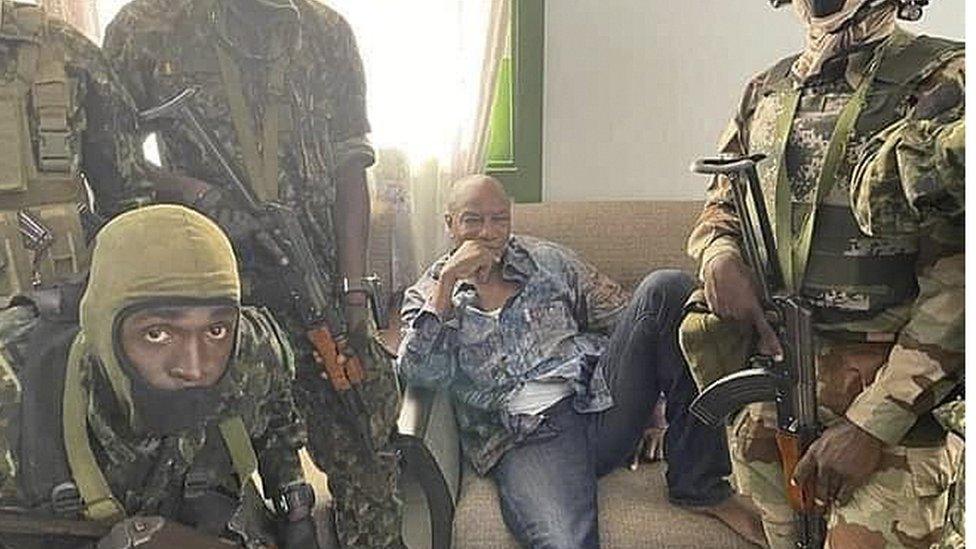
President Alpha Condé has not been seen in public since he was captured on Sunday
The coup has been widely welcomed by Guineans, hundreds of residents in the capital Conakry cheered on soldiers after it was confirmed that they had ousted Mr Condé's.
How did the coup happen?
In a broadcast on state TV on Sunday night, a group of soldiers announced the dissolution of the constitution, the closure of the borders and a nationwide curfew.
They said regional governors had been replaced by military commanders, and the ousted 83-year-old president was safe but in detention.
Coup leader Col Mamady Doumbouya said his soldiers had seized power because they wanted to end rampant corruption, human rights abuses and mismanagement.
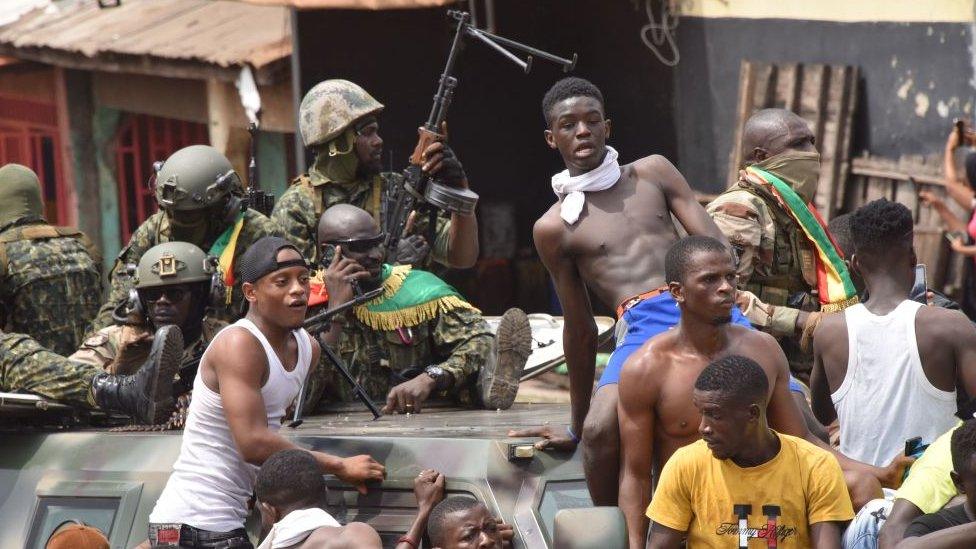
Crowds have been cheering on the soldiers since the takeover was announced
Guinea's coup is the fourth time West Africa has witnessed an attempt to undermine democracy in the region since August 2020. There have been two military takeovers in Mali and a failed attempt in Niger.
Related topics
- Attribution
- Published5 September 2021
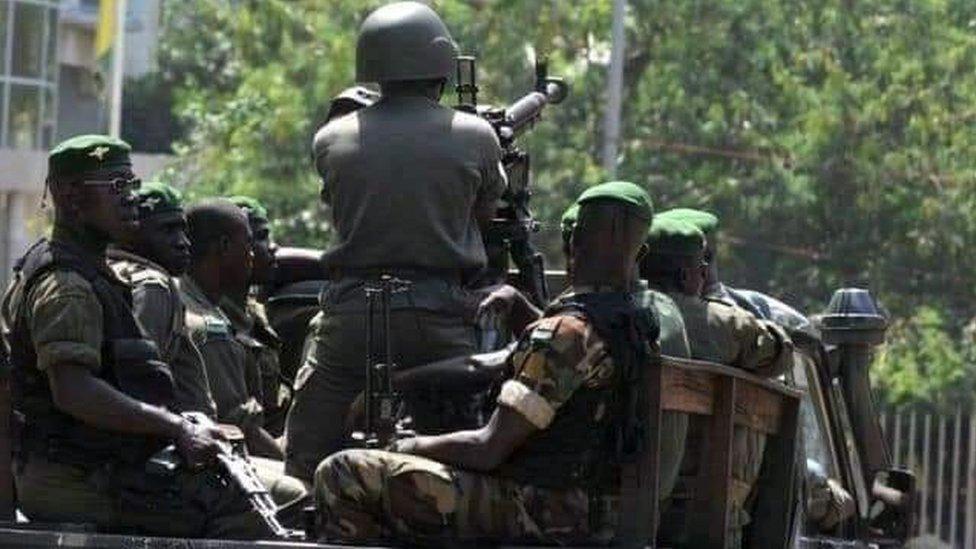
- Published24 October 2020
